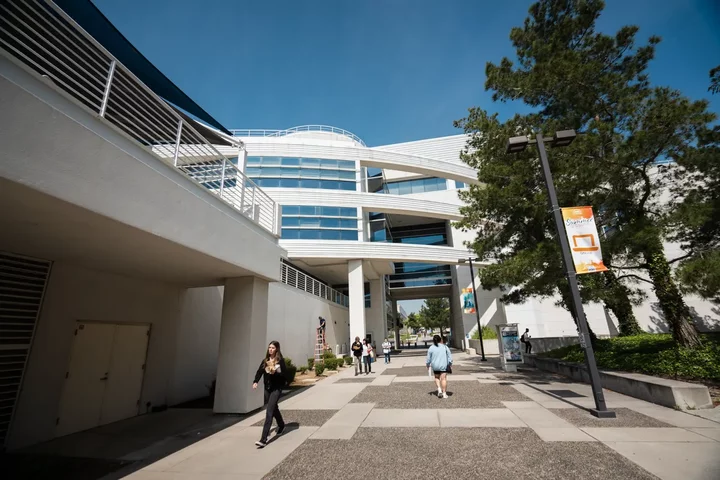OBITUARY: Robert Wayne Printy, 1949-2025
LoCO Staff / Thursday, June 19, 2025 @ 6:56 a.m. / Obits
Robert Wayne Printy, known by everyone as “Wayne,” was born to Fred and Joan Printy on October 1, 1949, in Eureka, where he grew up attending Lincoln Elementary, Eureka High School, and College of the Redwoods, earning his education. In college, he wrote a thesis on “The Effects of Consuming Too Much Television.”
Exiting college, he became a part of the commercial fishing industry, where he traveled along the coast, reaching Fort Bragg and numerous ports in between. He truly enjoyed being on the water and being outdoors.
Some years later, he welcomed his first child, Andrea Printy, followed by his son, Roben Printy, and his youngest daughter, Melessa Printy-Casson. Wayne owned two boats, one of which he built by hand with his father, Fred. The boat they built was named “Andrea Rae,” and the other was named “The Queen City.”
At times, he would feel adventurous and go on what he would refer to as his “walkabouts,” where he would travel to different states. Wayne not only loved to fish, but he loved hunting and keeping his truck in tip-top shape so he could sit comfortably, cup of coffee in hand, reading his favorite books by the bay.
He passed away due to a sudden illness on May 17, 2025. Wayne is preceded in death by his parents, Fred and Joan Printy; his youngest sibling, Leslie Sauls; and his grandson, Andrew Bennett.
He is survived by his sisters, Wanda (Ken) Dougherty, Wendy (Jim) Smith, and Billy Sauls; his children, Andrea Printy, Roben Printy, and Melessa Printy-Casson (her three children); grandchildren, Raina (Thomas) Uber and Kayla (Daniel) Rockholt; along with 11 great-grandchildren and numerous nieces and nephews; and his very dear friends, Mike (Chun) Watts, Frank McKay, Wayne Watts, Susan Hubbard, and Jim Pell.
Wayne truly loved his entire family.
There will be a celebration of life held Saturday, June 28, from 11 a.m.–3 p.m. at the Humboldt County Peace Officers Hall, located at 2351 Freshwater Road, Eureka, CA 95503.
Note: Going out Freshwater Road, the driveway is on your left at the third speed bump. Please honor all speed limits.
The family asks for all who knew and loved Wayne to come out, exchange stories and celebrate a wonderful man.
###
The obituary above was submitted on behalf of Wayne Printy’s loved ones. The Lost Coast Outpost runs obituaries of Humboldt County residents at no charge. See guidelines here.
BOOKED
Today: 3 felonies, 10 misdemeanors, 0 infractions
JUDGED
Humboldt County Superior Court Calendar: Today
CHP REPORTS
0 Sr299 (HM office): Closure of a Road
2300 Mm299 E Hum R23.00 (HM office): Traffic Hazard
840 Mm299 E Tri 8.40 (RD office): Traffic Hazard
Us101 / Cr429 (HM office): Trfc Collision-Minor Inj
22450-22793 Sherwood Rd (HM office): Trfc Collision-No Inj
14452 Alderpoint Rd (HM office): Traffic Hazard
1656 Union St (HM office): Road/Weather Conditions
ELSEWHERE
RHBB: Highway 299 Closed Between Blue Lake and Berry Summit as Snow Continues to Fall
RHBB: 83-Year-Old Pedestrian Killed in Eureka Crosswalk Collision With RV
(VIDEO) Here’s Your First Sneak Peek at What the Bay Trail Looks Like Behind the Old Mill at Brainard!
Hank Sims / Wednesday, June 18, 2025 @ 2:34 p.m. / Trails
Video: Shane Mizer.
We’re still nine days away from the glorious, long-awaited official opening of the Eureka-Arcata Bay Trail, and what a day that will be! It’s gonna be a full day-long party in both cities, with a bevy of activities — a fun run, a community skate event, a group bike ride, bike-friendly shuttles running in both directions — and it’s all culminating with a giant party at the Adorni Center from 3 p.m. to 6 p.m. Find all the details in the press release below.
In the meanwhile: We can’t help but notice, as we are sure you have noticed, the asphalt on this sucker has already been laid down. That means that even though work has not quite been finished, and the ribbon has not yet been cut, some people are jumping the gun.
We at the Outpost do not condone such behavior. To the scofflaws who so trespass, we can only offer the LoCO Curse: Follow the instructions of any construction workers you run across without fail, and don’t fuck up the new pavement in any way, or find yourself damned to eternal torment.
Still, a former Friend o’ the LoCO today sent the above video, which kind of answers the question we’ve had for months (nay, years!) That is: So what does it look like behind the old Brainard Mill, there, which the trail cuts behind?
Well, now we know! Press play on the video above to get your own sneak peek!
Press release from the Redwood Community Action Agency:
The eagerly awaited Grand Opening Celebration for the County of Humboldt’s Humboldt Bay Trail South segment, connecting the cities of Eureka and Arcata, will be held on Saturday, June 28.
This segment of the Humboldt Bay Trail, which is also part of the Great Redwood Trail, will be celebrated through a full day of activities, concluding with a trail party at the Adorni Center, located at 1011 Waterfront Dr. in Eureka, from 3 to 6 p.m.
Adorni Center Celebration Details
The celebration will include music, food trucks, bike valet, rentals and tune-ups and information tables hosted by trail supporting organizations. A brief program will recognize the decades of work that made the trail possible, with remarks by Senate President Pro Tempore Mike McGuire, Great Redwood Trail Agency’s executive Director Elaine Hogan and Humboldt County’s Deputy Public Works Director of Environmental Services Hank Seemann. Following the recognition program, attendees will have the opportunity dance to the musical stylings of Pandemonium Jones. Refreshments will be available.
Pre-Celebration Community Events
Trail activities prior to the Adorni Center event include two morning trail clean ups, a one-way skate date for roller skaters, skateboarders and scooter riders from Arcata to Eureka, a bike ride to the celebration and a “map your own” run activity and be entered to win raffle prizes. For people who want to ride the bus or who only want to ride/walk/roll/run one way, the Humboldt Transit Authority will provide a shuttle every 30 minutes between Arcata and Eureka, and the Humboldt Trails Council will provide a bike-hauling vehicle shuttle.
To learn more about the Adorni Center event, shuttle schedules and trail activities, please visit tinyurl.com/trailparty. For more information, please contact Carol Vander Meer at cvandermeer@rcaa.org or Colin Fiske at colin@transportationpriorities.org.
About the Humboldt Bay Trail South
Completion of the Humboldt Bay Trail between Eureka and Arcata along the Humboldt Bay shoreline has been a regional priority for nearly 25 years. The Humboldt Bay Trail South project includes the “final four” miles of trail between the Bracut Industrial Park and the Eureka Waterfront Trail. The completed trail will provide an alternative to vehicular travel between Eureka and Arcata with tremendous views and up-close experiences of Humboldt Bay. Most of the new trail segment is situated between the railroad and Highway 101, with a one-mile portion situated on top of the levee around the Brainard Mill site. In addition to serving the region’s transportation needs and enhancing coastal access, the Humboldt Bay Trail will achieve a critical link in the California Coastal Trail and advance the Great Redwood Trail.
The Humboldt County Department of Public Works began construction of the Humboldt Bay Trail South Project in June 2023. The project’s prime contractor was Arcata-based McCullough Construction. Construction management services were provided by Ghirardelli Associates, with engineering support from GHD, Inc. Funding for construction has been provided by the California Transportation Commission’s Active Transportation Program, California State Coastal Conservancy and Caltrans District 1.
The overall Humboldt Bay Trail is being developed as a collaborative effort between the County of Humboldt, Humboldt County Association of Governments, City of Arcata, City of Eureka, California Department of Transportation, California State Coastal Conservancy, Great Redwood Trail Agency, Humboldt Trails Council, Redwood Community Action Agency, Timber Heritage Association and other partners. Additional information is available at humboldtbaytrail.info.
Organizers and supporters of the Humboldt Bay Trail Grand Opening Celebration planning include the Coalition for Responsible Transportation Priorities (CRTP), Great Redwood Trail Agency, Redwood Community Action Agency (RCAA), Humboldt Trails Council, Ink People Center for the Arts, Humboldt County Association of Governments (HCAOG), County of Humboldt, City of Eureka, City of Arcata, Bike Month Humboldt Coalition, Friends of the Eel River, Humboldt Waterkeeper, Environmental Protection Information Center (EPIC), Humboldt Bay Bicycle Commuters Association, Redwood Coast Energy Authority and Mir de Silva.
(AUDIO) What’s Happening in Humboldt For Juneteenth? Folks From Black Humboldt Stopped by KSLG to Tell Us
Sabina Gallier / Wednesday, June 18, 2025 @ 7:05 a.m. / On the Air
Lexxi and Ra from Black Humboldt in the KSLG studio | Photo: Sabina
(AUDIO) Black Humboldt talks Juneteenth on KSLG
On Thursday, June 19, Black Humboldt will again host its annual Juneteenth celebration, as part of the national holiday that commemorates the announcement of the abolition of slavery and the emancipation of enslaved African Americans throughout the former Confederate States of America.
In advance of the festivities, Black Humboldt’s Network Alchemist Lexxi and its Art & Culture Innovator Ra stopped by KSLG’s Old Town Studio to chat with DJ Sabina about the coming three days of joy, connection, community, as well as the importance of continuing to celebrate the achievements of the past in the present. With the impacts of slavery and the African Diaspora still affecting Black people today, the Juneteenth celebration serves as a reminder of the ongoing fight for equality.
The Juneteenth Multiday Cultural Festival runs Thursday, June 19 through Saturday, June 21, ending with a festival at Halvorsen Park on Saturday from 12-9 p.m.
More event info can be found on Black Humboldt’s social media pages and on the flyers below.
LINKS
- https://www.blackhumboldt.com/
- https://www.facebook.com/BlackHumboldt
- https://www.instagram.com/blackhumboldt
Ra, Lexxi and Sabina in KSLG’s Old Town studio
Lawsuit Says Federal Government Discriminates by Funding Hispanic-Serving Colleges
Denise Amos / Wednesday, June 18, 2025 @ 6:57 a.m. / Sacramento
The CSU San Bernardino campus on April 22, 2024. Photo by Jules Hotz for CalMatters
###
This story was originally published by CalMatters. Sign up for their newsletters.
###
A lawsuit recently filed in Tennessee could affect colleges that serve large numbers of Latino students in the Inland Empire and throughout California, including Cal Poly Humboldt.
Students for Fair Admissions, the national group whose lawsuit resulted in the US Supreme Court striking down affirmative action in college admissions, has joined a lawsuit recently filed by Tennessee’s attorney general against the U.S Department of Education.
The lawsuit says the education department’s special funding for programs targeting “Hispanic-Serving Institutions” is discriminatory and unconstitutional.
Hispanic-Serving Institutions are colleges and universities where 25% or more undergraduates are Latino and a large share of the students are low income. The program is designed to help colleges and universities attract and support Latinos and other disadvantaged students.
National studies show Latinos are more likely than non-Hispanic white people to be first-generation college students and to face financial, linguistic, and cultural barriers to higher education.
The Hispanic serving program has grown exponentially since federal laws created it in 1992. The education department in 2023 spent $418.8 million on grants and assistance to colleges that qualified. They used the money for labs, libraries, tutors, student service programs, scholarships, fellowships, remote learning and other things. Special grants also support Latino students majoring in science, technology, engineering and math fields.
California has the most Hispanic-serving colleges — 171 of the 615 in the United States — including most Cal State and University of California campuses. About nine in 10 Latino students in California attend Hispanic-serving institutions.
Most of the Inland Empire’s colleges and community colleges are Hispanic-serving, including Cal State San Bernardino, which reported 72% of its undergraduates are Latino, and Riverside Community College, where 68% of its students are Latino.
Taken together, Riverside’s three community college campuses are the largest Hispanic-serving institution, with more than 59,000 students, said Wolde-Ab Isaac, chancellor of the community college district. The federal government sends it $3 million to $4 million a year through the Hispanic-serving program, but that’s only about 1% of its more than $300 million budget.
Without it, the district would find a way to still provide the same services, he said, because that is part of the college’s mission.
“We are serving the underserved. Our populations are educationally and economically underserved,” Isaac said. “This is a system failure … We have a category of our people that have been deprived over many years of neglect, creating generational gaps, both in terms of economic inequalities, social inequalities, health disparities.”
Targeting funding to colleges that provide them with extra support and services is fair, he said.
The Inland Empire is one of the few regions in California where high school enrollments and graduating classes are increasing, he added, but the region also has some of the lowest college-going and college graduation rates in the state.
“We have the most dynamic, the most diverse, the most vibrant population of any (college) and we have a much bigger share of poverty in our areas,” he said. “We have so many young kids compared to any place else and yet those opportunities are not there to help them unlock those talents.”
Hispanic-serving institutions operate in 30 states. Tennessee is suing because none of its colleges has that designation. The lawsuit notes that Tennessee’s colleges have enrolled Latino students, but they fall beneath the 25% threshold.
“To be sure, all Tennessee colleges and universities serve Hispanic students,” the suit states. “They also serve needy, low-income students of all ethnicities. But under the statute, they get no HSI money because they lack enough members of one particular ethnic group. So all students at these schools suffer.”
OBITUARY: Jim (James) Goodsir, 1942-2025
LoCO Staff / Wednesday, June 18, 2025 @ 6:56 a.m. / Obits
It’s impossible to describe a life of over 80 plus years in just a few paragraphs but I would like to tell you a bit about my partner, Jim Goodsir. Born an intrepid storyteller, Jim’s idea of a great conversation was one that dipped into past adventures and characters he met on his travels.
Born in the Midwest in the early 1940s, Jim was a middle child tucked between an older brother and younger sister. He grew up with parents who allowed him to be a wild kid in a small town, running free through tame woodlands in dairy country. Jim’s childhood stories describe him as the constant creator of minor mayhem. With a slight smile of satisfaction, Jim would launch into another tale perhaps entitled, “The time I fell into the septic tank and thought no one would notice,” or “The time we painted the dog green,” or “The time I rode the motorcycle through the high school hallways while class was in session.” Over time, these stories were shown to be true.
Many of these misadventures resulted in a warmed behind, but on occasion, he would be thrown into a situation that served him. As he told it, one of his neighbors, a retired teacher named Gladys Stare, had the first television in town. Jim and his buddies decided they would influence Gladys, without her knowing, to let them watch her TV. However, Gladys was a firm negotiator and traded them one hour of TV for one hour of reading from her personal library. Jim took her up on the deal and without planning it, fell in love with books and learning.
Jim spoke fondly of working summers as a teenager, staking tobacco, detasseling corn, and trimming Christmas trees, with long hours in the hot sun. He learned how incredibly refreshing the taste of ice water could be.
Jim spent his late teens and early 20s in the Marine Corps. He learned that you never volunteer for anything. We heard hair-raising tales, from the typhoon that ripped transport trucks off the deck of a troop ship he had the misfortune of being assigned, to marrying a woman with two kids, only to discover that she actually had six, and he had to support them on a private’s salary! These stories both ended well. He was below decks when the typhoon blew over and the marriage was short lived.
Subsequent years found Jim trying various trades to make his way. The mid-1970s found him in a blue panel van named Gertrude – one more hippie headed for Humboldt County. Jim found a job at Lazio’s Seafood and this small twist of fate changed his life. Describing himself as having long hair with a chest length beard and looking for all the world like Charles Manson, he started work there shoveling fish guts. He ended up as a clean-cut manager overseeing freezing fish. The feeling of welcome that he felt during his time at Lazio’s was a memory he returned to over and over.
Success followed through the years as he was hired to be General Manager at SeaPro, a large seafood processing company in Seattle, and later, to run summer halibut fisheries with Native corporations on St. George Island in Alaska’s Bering Sea. Jim celebrated all his work years in fisheries as a tribute to the generous support he received from Laurie Lazio and Lazio’s Seafood.
Jim loved to travel and would have loved to travel more. In the early 1980s, he traced his family roots to the Orkney Islands, meeting more Goodsirs than you could shake a stick at. A year or so later, armed with motorcycles, he and his partner at the time, Bonnie, toured Europe for 6 months. Jim savored the sights and sounds of those trips for the rest of his life.
In the mid 1980s, Jim returned to Humboldt County, falling into another joy — Humboldt State University. Majoring in Philosophy and Religious Studies, Jim found kindred souls in his quest for truth and the understanding of himself. Religious Studies professor Duncan Bazemore and his wise wife Loré, as well as religious studies students, provided a mirror to Jim’s world. If asked what religion he followed, Jim would answer that Hinduism came the closest to reflecting his beliefs.
Jim had an artist’s heart. His eye for photography and room design was superb. He passionately built adult-sized rocking animals – lions, giraffes, dinosaurs and dragons. Untrained in drafting designs, he labored slowly with one shape after another until the finished animals matched his internal picture and rocked to perfection. Unfortunately, the business was short-lived because no one in the household possessed the marketing skills to sell the lovely creatures.
My son Ben and I were privileged to be the recipients of Jim’s stories and part of Jim’s life from the late 1980s. He shared his love of agate collecting with us. Days at the beach would end with all of us damp, sandy and full of the best homemade fudge. We had pockets full of shiny agates and stories about how this rock was sitting right there with everybody walking right by it! With lines of agates set across the kitchen table from biggest to smallest and the very best set to the side. Our home was decorated with gallons of agates, vases of agates, baskets of agates.
I was cleaning out a drawer of odds and ends when I ran across a clip Jim used for keys. He had strengthened a part that slid over his belt. I remember his supreme satisfaction over this improvement. You would find nothing ambiguous about Jim. He knew what he liked and was always about the details. He never left the house without his hat, scarf, jacket, cane, gloves and leather bag containing a lucky rock/phone/keys/comb/money clip/wallet. Hours could be spent looking for any missing items before we were free to move about the county.
Coffee was a ritual of extreme importance to Jim. For many years, Jim had favorite coffee shops. At the last, he settled on Cafe Mokka at Finnish Country Sauna and Tubs. The atmosphere reminded him of his travels in Europe. Most days, you could find him at a corner table, comfortably arguing politics with owner Stan and Z, another intrepid Mokka fan. A newspaper, cup of coffee with extra foam and a thumbprint cookie completed the picture.
As Jim’s health worsened, friends stepped in to provide support. Jim began to fall without warning. His very good friend and neighbor, Robert, showed up at any hour to lift Jim back to his feet. Robert built a bench to fit over one of our bathtubs so that there would be no more broken ribs from falls. Our house was rearranged to provide soft landings.
In Jim’s final days, he stood for hours sorting agates and displaying them on shelves. Sometimes dementia will cause a person to be angry and lash out. Instead, Jim wrote mostly unfinished letters to friends and family, telling them how much they meant to him. Every conversation and note ended with the words, “I love you.” Every day, he pondered the blessings of his life. He was very clear that the visits of our friend Loré and his Hospice support staff helped to keep him alive and supported.
Jim died at the end of March 2025. He is survived by his wife Susan and stepson Ben, Brother Fred and Sister Gail as well as extended family. Jim’s parents lived in his memories as did his nephews, Joel and Hunter.
Please, consider celebrating Jim’s life in the way he thought to be most perfect: Tell the story of one of your most outrageous childhood adventures to a friend while you enjoy a cookie and cup of coffee at Cafe Mokka. Go to the beach and see if you can find an agate. Ponder your blessings.
The family thanks Hospice for its support of Jim at the end of his life. We also thank Lost Coast Outpost for allowing us to share Jim’s life with the community. These special gifts are greatly appreciated.
###
The obituary above was submitted on behalf of Jim Goodsir’s loved ones. The Lost Coast Outpost runs obituaries of Humboldt County residents at no charge. See guidelines here.
Anti-Offshore Wind Groups Target $426M Federal Grant to Port of Humboldt Bay
Clare Fieseler / Tuesday, June 17, 2025 @ 3:35 p.m. / Offshore Wind
A mock-up image of what the Samoa Peninsula would look like with the Redwood Marine Terminal retooled for the offshore wind industry. File graphic via the Humboldt Bay Harbor, Recreation and Conservation District.
###
This story was originally published by Canary Media.
###
A big-budget offshore wind project that would clean up a contaminated California port and turn it into America’s first hub for floating wind turbines is the latest target of an increasingly emboldened national anti-offshore wind movement.
Representatives
of a D.C.-based conservative think tank, Committee for a Constructive
Tomorrow (CFACT), and a local California community group asked the
U.S. Department of Transportation early this month to cancel a $426
million grant issued last year to repurpose the Redwood Marine
Terminal in Northern California’s Humboldt County for wind. If
successful, they could stymie the state’s plan to generate up to 5
gigawatts of offshore wind by 2030 and 25 gigawatts by 2045.
[CLARIFICATION: The community group, Responsible Energy Adaptation for California’s Transition (REACT) Alliance, is based in San Luis Obispo.]
PREVIOUSLY:
- (PHOTOS) The Biggest Federal Grant in Humboldt History? Huffman, Assorted Worthies Gather on Woodley Island to Celebrate $426 Million in Infrastructure Funding for Offshore Wind
- (VIDEO) See What Wind Turbine Assembly Would Look Like on Humboldt Bay, Courtesy of This Presentation From the Harbor District
Anti-wind activists told Canary Media they are looking to capitalize on the “timing” of a recent implosion of offshore wind plans in Maine, which — like California — sought to pioneer floating turbine technology in this country. Currently, all turbines operating or under construction in U.S. waters are fixed to the seafloor.
The move represents a westward spread of anti-wind activism from the East Coast, where longtime organized opposition has found sympathetic ears as it petitions the Trump administration to tank permitted projects.
For example, in February, groups lobbied for a halt to offshore projects already being built, an approach the Trump administration tested out in April by freezing New York’s Empire Wind installation, though construction was already underway. President Donald Trump reversed that decision after a month, but the move signaled that opposition groups have gained traction.
“They are clearly feeling emboldened by Donald Trump,” said J. Timmons Roberts, a professor of environmental studies and sociology at Brown University, who studies networks of anti-wind activists. “They are taking these local victories on the East Coast and continuing to move along.”
Both CFACT and the California community group, Responsible Energy Adaptation for California’s Transition (REACT) Alliance, are part of the National Offshore Wind Opposition Alliance, a coalition formed last year to broaden the fight against offshore wind, which had previously played out mostly at the local level.The Humboldt project was awarded the DOT grant in January 2024 and a developer has not yet been announced, but it’s been five years in the making. Humboldt Bay Harbor, Recreation, and Conservation District has already used nearly $20 million in state and federal funds to design and permit much of the planned wharf. The federal grant includes additional funds for port expansion as well as environmental restoration, a solar array, trails, public kayaking access, and a fishing pier.
Earlier this month, CFACT and REACT Alliance sent a letter to DOT Secretary Sean Duffy challenging the project’s “public interest” grant requirement, citing the “lack of viability of the floating offshore wind ‘industry.’” The letter also points to Trump’s anti-wind directive, which halted federal permitting and leasing for wind projects but did not mention grants for supporting wind infrastructure, like ports.
“We decided that the timing and the political will was there for us to go ahead and write this letter and to ask for the grant to be terminated,” said Mandy Davis, REACT Alliance’s president.
Davis told Canary Media that two recent setbacks in Maine’s pursuit of floating offshore wind motivated the group to act. First, Maine’s application for the same DOT grant awarded to the Humboldt Bay Harbor project was rejected in October. Those funds would have helped finance a port for floating offshore wind on Sears Island, Maine. Secondly, this spring, the Department of Energy clawed back a grant to the University of Maine to build and test the state’s first floating turbines.
Davis leads both REACT Alliance and the National Offshore Wind Opposition Alliance. She insists that neither of those groups receive any monetary support from CFACT, though the D.C. think tank co-signed the letter. According to the research group DeSmog, CFACT has received hundreds of thousands of dollars from fossil-fuel groups over the years.
“CFACT has, for decades, been undermining the science of climate change and attacking efforts to address the issue. This is just their latest effort to destroy a climate solution,” said Roberts.
###
Clare Fieseler, PhD, is a reporter at Canary Media covering offshore wind. Her story is reprinted here with permission.
GUEST OPINION: Ack! I Just Learned About This Poisonous Plant That Grows All Over Humboldt and I Want You to Know About It!
LoCO Staff / Tuesday, June 17, 2025 @ 11:11 a.m. / Guest Opinion
[Ed. note: The following letter comes to us from Manila resident Michelle Baggett. When we first read it, we thought, oh, everyone knows about poison hemlock, right? But then we thought: Well, Michelle didn’t know about it. Maybe there are other people like Michelle! So here we are.]
Michelle Baggett
Attention:
Poison Hemlock can be found throughout Humboldt County and can cause harmful toxic effects to the body if touched, and can be deadly if eaten.
Poison Hemlock was pointed out to me last week along the Elk River Reserve trail near the Herrick Ave. Park and Ride. I was surprised that Poison Hemlock was growing right along the trail where people could touch it and pets could eat it.
I went home after my hike to find a Poison Hemlock plant in my compost pile. I would have pulled the plant out without precautions thinking that it was a different species of Queen Ann’s lace because the plants look very similar. One is a flower, the other is poison.
If I hadn’t been informed that the plant was extremely toxic I would not have taken the necessary precautions that are needed to stay safe and out of the hospital for a toxic exposure to Poison Hemlock.
Once you learn to identify Poison Hemlock you will notice that it can be found along our roadsides, our trails, and in many yards throughout Humboldt County. Route 255 along Arcata Bottoms is a good example of the how prolific Poison Hemlock is in our area.
It would be a great service to the community if you could point out the bodily threat that Poison Hemlock can pose when not handled properly.
I have attached a short description of the dangers Poison Hemlock can pose to people and pets below when handled improperly:
All parts of the plant are highly toxic to humans and animals. Poison hemlock is most dangerous when eaten, but the plant’s toxins can also be absorbed through the skin or breathed in. The primary toxin in poison hemlock is coniine. Coniine stops the nervous system from working properly, which can lead to suffocation.
Please consider doing a segment on the danger of Poison Hemlock in our community.
[Ed. note II: OK, Michelle!]













